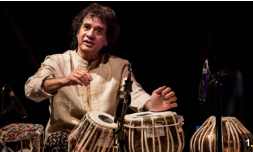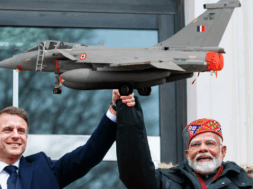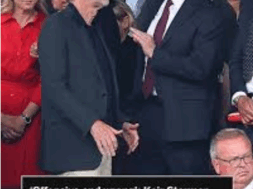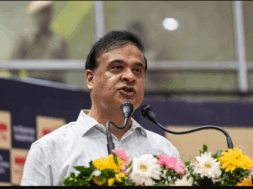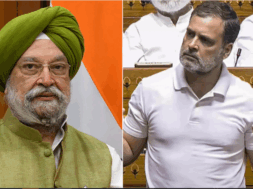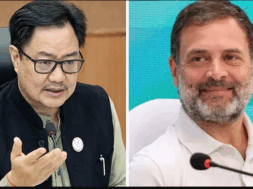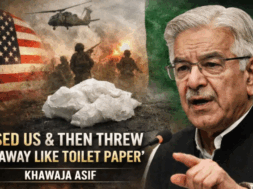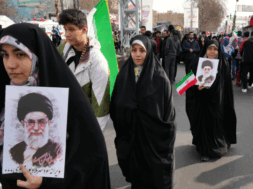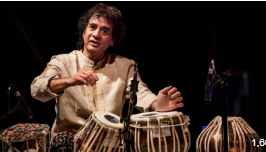
NEW DELHI, Dec 16: The famed tabla maestro Ustad Zakir Hussain, one of the greatest global ambassadors of Indian classical music, passed away on Monday after a brief illness in San Francisco, California, in the United States.
Born in 1951, Zakir transformed the modest instrument into a robust voice for universal peace and humanity, Hussain’s incredible speed, dexterity, and creativity mesmerised audiences across cultures.
Son of Ustad Alla Rakha, the eminent accompanist of Pandit Ravi Shankar, credited with taking tabla to foreign shores, Zakir Hussain grew up in Mumbai in an environment where his father believed that every instrument has its spirit. Hussain befriended the tabla at the age of three and by the time he hit teenage, the instrument had become his muse for life and perhaps an extension of his personality. After watching him play, one couldn’t see playing tabla as a chore in classical music.
His other two brothers, Taufiq and Fazal, are also noted percussionists but Hussain took his father’s legacy to the next level by adding a touch of showmanship and expanding the riches he inherited from the Punjab gharana. A keen learner and listener, Hussain was like a responsive satellite in orbit as an accompanist, shone like a star in his solos, and reserved the adventurous streak of a meteor for creating fusion music.
A child prodigy who gave his first professional performance at 12, Hussain was not regimented by his teacher-father. Rooted in Indian tradition, he was allowed to develop wings and explore new shores. His day would start with devotional music that would invoke Hindu deities followed by polishing Koranic verses in the neighbourhood madarsa before he would join the morning prayers at the Convent school. By 19, Hussain taught at the University of Washington before joining Ustad Ali Akbar Khan’s music college in San Francisco where he met his soulmate Antonia Minnecola.
Having grown up singing odes to Mother Saraswati, verses of the holy Quran, and hymns of the Bible as a daily ritual, India’s syncretic soul echoed through Hussain’s rhythmic art. With a flair for carving stories out of percussive sound, his conversational music buzzed with a spark of spontaneity. Natural flow defined his music and personality. The Padma Vibhushan would impress the purists, enthrall the seekers of fusion, and handhold the fans of Bollywood music into his creative space with equal felicity. At the peak of his creativity genius, he bagged three Grammys in one night this February.
Like his carefully designed free-flowing style, the versatile artist would execute complex rhythms, intricate patterns, and nuanced dynamics and then move on to items like the sound of traffic signal and deer’s walk, without putting music into brackets. In tune with technology, over the years, he experimented with frequencies to highlight the subtle shades of the instrument to establish that tabla is not just a rhythmic instrument but also a melodic one. He emerged on the scene alongside eminent tabla artists like Anindo Chatterjee, Shafaat Ahmed Khan, Kumar Bose, and Swapan Chaudhuri, but Hussain’s role in popularising tabla and providing it a global platform remained unparalleled.
He shared a special bond with Santoor maestro Pandit Shiv Kumar Sharma, flautist Hari Prasad Chaurasia, and sarangi stalwart Ustad Sultan Khan. Their jugalbandis would start as melodic banter and then turn meditative. In sync with the next generation, last year, he composed the Triple Concerto for Tabla, Sitar and Flute, with Niladri Kumar and Rakesh Chaurasia, and his collaboration with Carnatic musicians extended to violinist Kala Ramnath and veena exponent Jayanthi Kumaresh.
Fusion was never a novelty for Hussain as he had grown up listening to stories of how Amir Khusrau blended the Indian traditions of Dhrupad and Haveli sangeet with Sufi Qaul to create Khayal. As a young musician, he saw his father and colleagues contributing to Hindi film music that liberally drew from diverse musical streams. Hussain had his brush with cinema when he played tabla for Laxmikant Pyarelal’s maiden venture Parasmani. Later he composed music for Ismail Merchant’s films like Muhafiz, Aparna Sen’s Mr And Mrs Iyer, and Rahul Dholakia’s Parzania. The meaningful sound of his tabla lent layers to storytelling in international productions like Francis Ford Coppola’s Apocalypse Now and recently Dev Patel’s Monkey Man.
(Manas Dasgupta)
